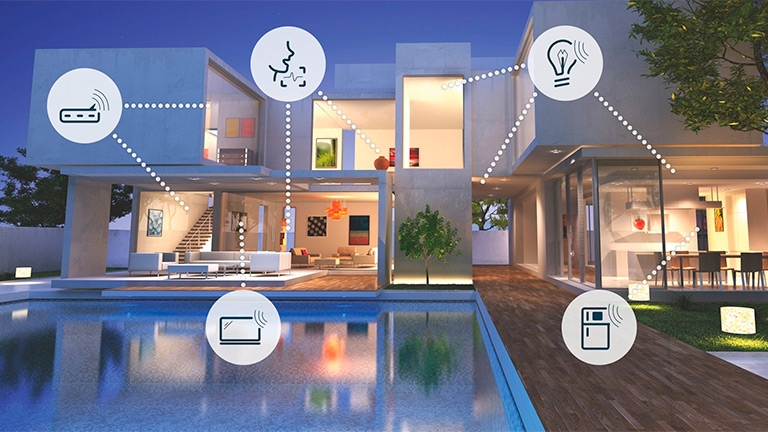In an era where technology seamlessly integrates into our daily lives, the concept of smart homes has emerged as a beacon of convenience and innovation. With artificial intelligence (AI) playing a pivotal role, homeowners and businesses are increasingly embracing these automated environments. But as we embrace this technological marvel, an essential question persists: How safe is AI in smart homes? Understanding the security implications of AI in smart homes is crucial for anyone looking to invest in this modern-day convenience.

The Promises and Perils of AI-Powered Smart Homes
AI in smart homes offers a host of promises, from enhanced security and energy efficiency to convenient lifestyle automation. Yet, these advancements come with their own set of challenges. While AI can learn and adapt to your routines, making your home more intuitive, it also raises concerns about data privacy and potential vulnerabilities to cyber threats.
Enhanced Security: A Double-Edged Sword
AI can significantly bolster the security of a smart home. With intelligent cameras, motion sensors, and facial recognition technologies, AI provides a robust defense against intrusions. However, the very data that strengthens security can also be a target. Cybercriminals may attempt to breach these systems, potentially gaining access to sensitive information. For more insights on how AI is transforming home security, check out this article on AI home personalization.
Data Privacy Concerns
One of the most pressing concerns surrounding AI in smart homes is data privacy. As these systems collect and analyze vast amounts of data to provide personalized experiences, questions arise about how this data is stored, shared, and protected. Homeowners and businesses must be vigilant about the privacy policies of the devices they use, ensuring that their data remains secure and is not shared without consent. Learn more about how AI is integrated into smart homes by visiting AI and robotics in smart homes.
Measures to Ensure AI Safety in Smart Homes
To ensure that AI in smart homes remains a secure and reliable asset, several measures can be taken. These measures not only protect the integrity of the home but also safeguard the privacy of its inhabitants.
Regular Software Updates
Regular software updates are essential in maintaining the security of AI-powered devices. Manufacturers frequently release updates to patch security vulnerabilities and improve the performance of their devices. Homeowners should ensure that their devices are always up-to-date to protect against potential threats.
Strong Password Practices
Implementing strong password practices is a fundamental step in securing smart home devices. Many security breaches occur due to weak or default passwords. Homeowners should use complex passwords and change them regularly to minimize the risk of unauthorized access.
Secure Networks
Ensuring that the home network is secure is another crucial aspect. Using encrypted Wi-Fi networks and setting up a guest network for visitors can help protect the main network where smart devices are connected. This reduces the risk of unauthorized access and potential breaches.
The Future of AI in Smart Homes
The future of AI in smart homes is promising, with advancements in technology continually enhancing their capabilities. As AI becomes more sophisticated, it will offer even greater levels of convenience and security. However, the balance between innovation and security will remain a critical focus.
For homeowners and businesses looking to invest in smart home technology, understanding the security implications and taking proactive measures is essential. By staying informed and employing best practices, they can enjoy the benefits of AI while minimizing potential risks.
For a comprehensive guide on setting up a smart home, visit this smart home installation guide.

FAQs
What are the main security risks associated with AI in smart homes?
The main security risks include data privacy concerns, potential cyber-attacks, and unauthorized access to personal information through hacked devices.
How can I protect my smart home from cyber threats?
To protect your smart home, ensure devices are regularly updated, use strong passwords, secure your network, and be cautious of the data-sharing policies of your devices.
Are there any regulations governing AI in smart homes?
While specific regulations may vary by region, there are increasing calls for standardized regulations to ensure data privacy and security in AI-powered smart homes.
To explore more about AI's role in smart homes, you can read about AI-powered cooking devices and their impact on modern living.

